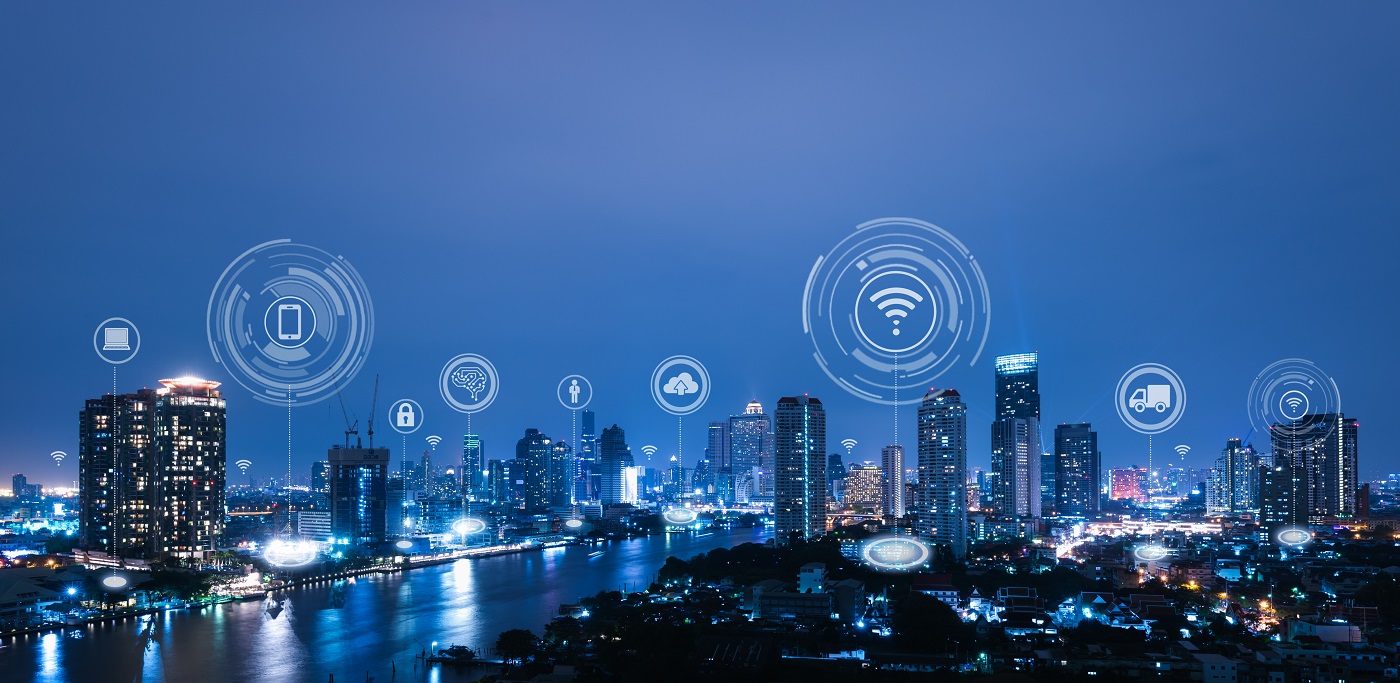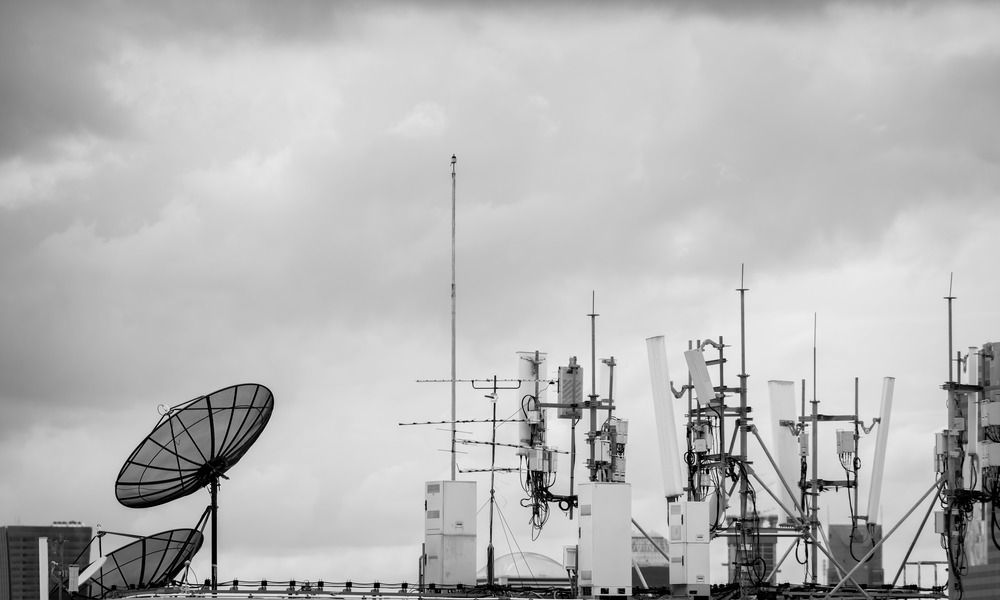
An Agenda for Establishing Secure and Resilient Smart Cities
The Rise of Smart Cities
Today more than half of the world’s population lives in cities, and by 2050 this percentage is expected to rise to nearly 70 percent. In parallel to rapid growth in urbanization, technological progress has led to the mass proliferation of digital information about people, places, and things that can be rapidly transmitted and analyzed with increasingly powerful networking technologies and analytical tools. This digital proliferation is synonymous with the internet-of-things, or IoT, and has converged with urbanization to create the paradigm of “smart” cities.
A smart city is not just technologically advanced; it is a platform for the sustainable and inclusive enhancement of nearly all aspects of society. However, achieving such positive outcomes as smart cities evolve is not a simple task.
The Evolution of Smart Cities
While urbanization and technology have laid the foundation for smart cities, the COVID-19 pandemic that emerged in 2020 may ultimately shape long-term implementations.

As a result of social distancing mandates implemented to mitigate disease spread, smart city technologies and services for healthcare, work, education, retail, finance, security, entertainment, food services, mobility, and essentially any other activity requiring human interaction have undergone both acceleration and transformation.
Although the fundamental architecture of smart cities remains centered around an IoT foundation upon which applications are built for defined use cases, the use cases themselves have both evolved and accelerated in their implementation.
In healthcare alone, activities such as telemedicine, contact tracing, public health messaging, mobility pattern analysis, and robotic patient care have emerged and begun to transform the notion of healthcare delivery from one of in-person interaction to one of digital engagement.
Likewise, urban transportation is seeing significant changes due to changing social practices resulting from the pandemic and government policies being implemented for pandemic recovery. Digital technologies will play a key role in these changes as efforts to reestablish demand for public transportation increasingly focus on flexible transit scheduling and planning and the development of multimodal digital platforms that integrate public transportation with bikes, scooters, ride-hailing, and other mobility modes.
In short, even the most established smart cities face the innovation challenge of re-imagining city operations for a new era of heightened concerns for health and resiliency, the latter of which additionally factors into climate change considerations. Similar to the COVID-19 pandemic, climate change is now generally recognized as a globally disruptive and destructive issue that must be mitigated through increased government efforts that include the design, implementation, and operation of smart cities.
While the noted trend towards increased city intelligence through digitalization affords many opportunities for improving the lives of citizens, it also creates a number of security concerns.
The rapid growth in digital information collection, storage, and use has opened up multiple new attack surfaces for cyber-terrorism, cyber-warfare, and cyber-crime. While cyber-terrorism and cyber-warfare often have social and political motivations, cyber-crime is tied largely to commercial and economic interests and can impart significant financial costs on victims. Indeed, the financial impact of cyber-crimes is expected to amount to as much as US$6 trillion in 2021 considering damage and destruction of data, stolen money, lost productivity, theft of intellectual property, theft of personal and financial data, embezzlement, fraud, post-attack disruption to business operations, forensic investigation, restoration and deletion of hacked data and systems and/or reputational harm.
This considerable cost is expected to rise to as much as US$10.5 trillion by 2025 as the storage of digital data rises in the coming years. The accumulation of digital data has only hastened as a result of the COVID-19 pandemic as the extent of consumer online interactions has been accelerated by three to four years and the extent of business product and service digitalization has been accelerated by six to ten years.
The rapid, and now accelerated, pace of digital activity places a great burden on smart city infrastructure as operational technologies (OT) and information technologies (IT) converge to offer new services and capabilities. Legacy OT systems that are not secure combined with the proliferation of novel, but insecure, digital devices combine to make cybersecurity and cyber resilience urgent for smart cities. Preservation of the confidentiality, integrity, and availability of information in cyberspace coupled with the capacity for rapid recovery from cyber incidents must sit at the top of cyber secure and cyber resilient smart city agendas.
A Forward-Looking Agenda for Smart Cities
The sharing of international expertise, technologies, and best practices can play an important role in achieving cyber secure and cyber resilient smart cities. The United Arab Emirates, Singapore, and Israel are three highly urbanized countries that are aligned in their ambitions for innovation and security in the urban context. While each country scores highly in international innovation rankings, Singapore is particularly advanced in smart city technology innovation while Israel is a global leader in cyber security innovation.
The UAE has rapidly built smart city visibility, particularly related to developments in the emirates of Abu Dhabi and Dubai, and has visible initiatives to ensure that these cities are cyber secure and resilient, including the 2020 formation of a Cybersecurity Council headed by a recently appointed government Head of Cyber Security.
Among emirate level initiatives, Dubai has established a Cyber Security Strategy and in Abu Dhabi, the Advanced Technology Research Council (ATRC) was formed in 2020 and has set forth a research and development strategy that clearly puts cybersecurity at the forefront by including cryptography, digital security, and secure systems as three of seven top priority research areas for the emirate.
An agenda for smart city collaboration among the UAE, Singapore and Israel would certainly involve the exchange of best practices regarding legal and regulatory frameworks as well as engagement in technology investment and trade.
However, ecosystem development is what underpins long-term sustainability and hence international collaboration should further entail targeted initiatives addressing human capital, R&D, and innovation. Human capital development is very important given the growing shortage of skilled cyber security manpower. R&D supports the development of human capital and further brings value to the development of cutting-edge approaches to smart city services, security, and resiliency.
R&D topics of particular merit within the cyber security context include the protection of edge devices, application of artificial intelligence techniques, application of blockchain, and in the coming years, the implementation of quantum technologies. Innovation further builds on human capital and R&D advances to establish commercially viable new technologies tailored to applications.
On this latter point, R&D and innovation collaboration may focus on specific smart city sectors of common interest and growing importance. Given that both healthcare and transportation are being re-imagined as a result of COVID-19, focused initial collaboration efforts in these domains, for instance, could lead to large rewards for all involved.
Urbanization and technological trends make the rise of smart cities inevitable. As discussed in this paper, however, smart cities will inherently face threats and challenges. Collaboration among countries that have common interests in securing a successful future for their smart cities can help mitigate these threats. The UAE, Singapore, and Israel are three such countries that can reap the benefits of collaboration through a holistic partnership that addresses human capital, R&D, and innovation while taking into consideration applications with both near and long-term importance.
The full conference session to which the story relates is available online, here:
Dr. Steve Griffiths is the Senior Vice President of Research and Development and Professor of Practice at Khalifa University.






